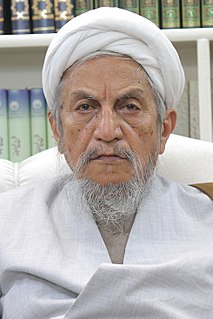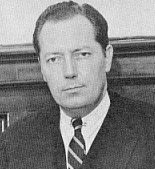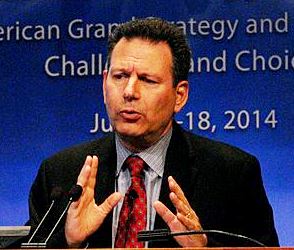A Quote by Ayn Rand
Individual rights are the means of subordinating society to moral law.
Quote Topics
Related Quotes
MORAL LAW, Evidence of.- Man has been subjected by his Creator to the moral law, of which his feelings, or conscience as it is sometimes called, are the evidence with which his Creator has furnished him. ... The moral duties which exist between individual and individual in a state of nature, accompany them into a state of society ... their Maker not having released them from those duties on their forming themselves into a nation.
Any group or "collective," large or small, is only a number of individuals. A group can have no rights other than the rights of its individual members. In a free society, the "rights" of any group are derived from the rights of its members through their voluntary individual choice and contractual agreement, and are merely the application of these individual rights to a specific undertaking... A group, as such, has no rights.
The strength of an individual is not in his extreme freedom and libertine lifestyle, but in the stalwartness of his character and his moral vigor. The society is made of individuals. What is true for an individual is also true for the society. A society that is not founded on moral values is doomed to fall.
It is my interpretation from the Koran that all people have equal rights. That means men and women, Muslims and non-Muslims too. Oppression doesn't exist in Islam. And in a society where all people have equal rights, that means all people should make decisions equally... This doesn't mean that we're changing God's law, It just means we're reinterpreting laws according to the development of science - and the realities of the times.
When you say there's too much evil in this world you assume there's good. When you assume there's good, you assume there's such a thing as a moral law on the basis of which to differentiate between good and evil. But if you assume a moral law, you must posit a moral Law Giver, but that's Who you're trying to disprove and not prove. Because if there's no moral Law Giver, there's no moral law. If there's no moral law, there's no good. If there's no good, there's no evil. What is your question?
But the individual was not a tool for something. He was the maker of tools. He was the one who must build. Even for the best purpose it is criminal to turn an individual into simply a means for some ultimate end. A society in which the dignity of the individual is destroyed cannot hope to be a decent society.
Human rights' are a fine thing, but how can we make ourselves sure that our rights do not expand at the expense of the rights of others. A society with unlimited rights is incapable of standing to adversity. If we do not wish to be ruled by a coercive authority, then each of us must rein himself in...A stable society is achieved not by balancing opposing forces but by conscious self-limitation: by the principle that we are always duty-bound to defer to the sense of moral justice.
Is the Reformed faith opposed to human rights? Yes, very much so. It is not human rights but Divine law which is the foundation of liberty and the safeguard against tyranny. It is not something proceeding from man (rights), but something proceeding from God (revealed law) which is to order Christian society.
Human beings have rights, because they are moral beings: the rights of all men grow out of their moral nature; and as all men havethe same moral nature, they have essentially the same rights. These rights may be wrested from the slave, but they cannot be alienated: his title to himself is as perfect now, as is that of Lyman Beecher: it is stamped on his moral being, and is, like it, imperishable.




































